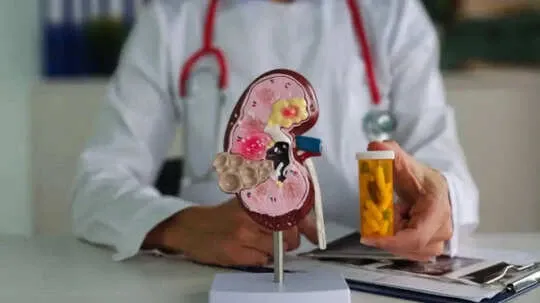Common Painkillers Are Damaging Your Kidneys; Here’s How You Can Protect Them
admin | August 13, 2025 5:22 PM CST

Over-the-counter painkillers are among the world's most commonly used medications, as they help relieve the debilitating symptoms. Whether you have a headache, muscle ache, arthritis, or even post-operative pain, most people reach for a painkiller without a second thought.
Even though they are super effective in providing instant relief, what you may not realise is their potential impact on your kidneys.
According to experts, many people succumb to kidney failure as a result of prolonged and inappropriate painkiller use.
How do painkillers damage your kidneys?
A few ways painkillers can impair your kidney functions include:
Reduced blood flow to the kidneys
Most painkillers - including NSAIDs - interfere with the production of prostaglandins, which dilate blood vessels in your kidneys. Reduced prostaglandin levels lead to your blood vessels narrowing, resulting in decreased blood flow.
Interstitial nephritis
It happens due to inflammation of your kidney's filtering units - also known as nephrons. Doctors say it gets triggered by allergic reactions to medicines like painkillers.
Chronic kidney disease
Chronic kidney disease, or CKD, happens due to long-term use of painkillers, especially in high doses or combinations. It causes a gradual loss of kidney function, and as the damage accumulates over time, it goes unnoticed until the condition becomes severe.
Electrolyte imbalances
Painkillers impair your kidneys' ability to maintain a proper balance of electrolytes like potassium, sodium, and calcium, which may lead to fatigue, irregular heartbeat, or muscle weakness.
Dehydration
Painkillers can reduce your kidneys' ability to conserve water and increase the risk of dehydration, which further reduces blood flow, worsening any existing damage.
What are the signs and symptoms of kidney damage?
According to experts, kidney disease is often referred to as a silent killer because it may not show symptoms until significant damage has occurred. However, a few early warning signs may include:
- Fatigue or weakness
- Swelling in the legs, ankles, or face
- Changes in urination
- Nausea or vomiting
- Loss of appetite
- Difficulty concentrating
- Shortness of breath
- High blood pressure
- Persistent itching
READ NEXT
-
I'm a royal expert and Princess Kate's latest fashion move speaks volumes

-
How Identifying And Capitalising On Underserved Spaces Can Turn Market Gaps Into Opportunities

-
How Identifying And Capitalising On Underserved Spaces Can Turn Market Gaps Into Opportunities

-
Exploring the Complexities of Rustom: A Cinematic Take on the Nanavati Case

-
Radhika Ambani Or Janhvi Kapoor: Who Wore The Flower Look Better
